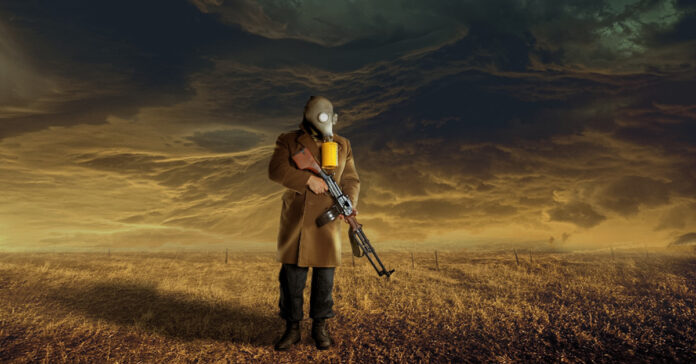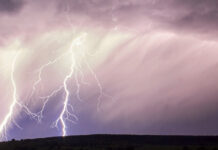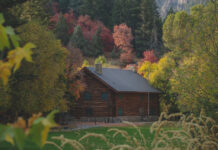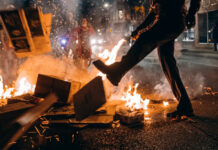Here are two quotes from a Wall Street Journal article on the Shanghai lockdowns and its impact on residents. According to the article, which ran on June 25, many of the affected residents now want to move out of Shanghai and possibly out of China.
“After lockdown, Mr. Yin’s friend went out and bought a freezer to be ready for the next one.”
“He told his parents to make sure they always had enough food for two months: 50 cans of meat and fish, 130 pounds of rice.”
The article ends with this:
“You still have a leash around your neck,” Mr. Yin said. “Only now, the leash is a bit longer.”
Two Mistakes
I see in the above quotes examples of two things that new preppers often do.
- First, they prepare for the last emergency, not the next one.
- Second, they rely on frozen food, assuming there will be electricity.
Let’s examine these one at a time.
Prepping for the Last Emergency
While it is important to learn from disasters we survive, it is unlikely that the next disaster will be repeated. For example, prepping for the next wave of COVID-19 didn’t do much to prepare people for $5 gas and food inflation.
The good news is that the prepping basics – storing food, having a couple of ways to source and purify water, and shelter – will help in any emergency scenario. It’s the specific preps that won’t. For example, people who stocked up on toilet paper and hand sanitizer probably wished they had spent that money on food instead. Yes, the toilet paper will eventually be useful, and I can see many uses for rubber gloves, but the next disaster isn’t likely to include widespread lockdowns.
During the COVID-19 lockdowns in the U.S., most people stayed home rather than bug out to their retreat. They learned to work and attend school online. These skills will be of little use during a nuclear event, an EMP attack, or in the event China invades Taiwan.
These events might require the exact opposite of a lockdown: Bugging out. It’s great to be prepared to survive at home, but if you live in an urban or suburban area you should identify somewhere you can go that has a much lower population density.
Expecting Electricity
In my opinion, it isn’t that much of a disaster if the electricity remains on.
For example, the high heat across much of the U.S. is manageable if you have air conditioning and electricity. It becomes an emergency when the power goes out.
We have a stand up freezer and it’s pretty full, but the food in there is not our survival supplies, and it shouldn’t be yours. Frozen food is a great way to offset rising prices, to store items bought on sale, and to ensure you have meat and chicken when the stores experience a “supply chain problem,” but it’s going to go bad a few days into any serious disaster that knocks out electricity.
Do I blame the people in Shanghai for buying a freezer and loading it up so they are ready for the next lockdown? No, but that’s another example of preparing for the last disaster. If there’s a war in the Pacific because of Taiwan and they instruct Shanghai residents to head into the nearest bomb shelter or basement to take shelter, they will wish they had canned food that can be carried with them in a backpack and eaten cold.
If your preps are made with the assumption that there will be electricity, then you better have a large solar system with built-in EMP protection and plenty of spare parts. And you better be prepared and equipped to defend it.
The food part of the Big Three (food, water, shelter) requires food that is shelf stable. The water part requires water that does not depend on electric pumps. Your shelter should also be able to protect you from the elements if there is no electricity, meaning no HVAC.
Common Denominators
When you look at what accompanies most disasters, whether natural or man-made, panic is often a common denominator.
If you live in Coastal Oregon and the Tsunami alarms blare, you can bet there will be panic. When a forest fire is heading your way and they declare an evacuation some of your neighbors will panic. If Russia nukes Ukraine or Poland, or if China invades Taiwan, you can bet one of the first reactions here in the U.S. will be panic. There will be financial panic and stocks will crash. There will parental panic as parents rush to take their kids out of school early. You can also expect panic buying at the grocery store.
If you take proactive action while others are running around like a chicken with its head cut off, you can give yourself an advantage. For example, you can be at the head of the line as people leave the city rather than caught up in the traffic jam. You may also be able to take steps to protect yourself from the lawlessness that accompanies a major disaster.
Have a Plan
The best way to avoid panic is to have a plan and to have practiced your plan. If you know what to do, you will do it rather than panic. Our plans include lists. Lists of things to grab if we bug out. Lists of people to call or text if we want our survival friends to head here. List of things to order online or buy locally, if time allows.
Your plan doesn’t start when a crisis hits. It should include what you want to prep and the order in which you plan to acquire your supplies. It should include a prepper pantry and long term storage food. Your plan should also cover self-defense, medical supplies and anything specific to your family, such as kid-specific or pet-specific items. It may include your top bugout location and directions how to get there.
The Next Crisis
I’ve been a prepper since before Y2K. Just when we got through Y2K, we had 9/11. Then there was the anthrax scare, followed by the war in Iraq and Afghanistan. Then Hurricane Katrina came along. I speak from experience when I tell you there’s always another crisis. Maybe the next crisis is predictable, maybe it will catch us by surprise. Maybe it will affect the other side of the earth, but maybe it will hit your hometown. We don’t know, and that’s why we prep.
Just remember, prep for the next crisis, not the last, and prep like the next one will be worse.
Here’s another article for new preppers.








